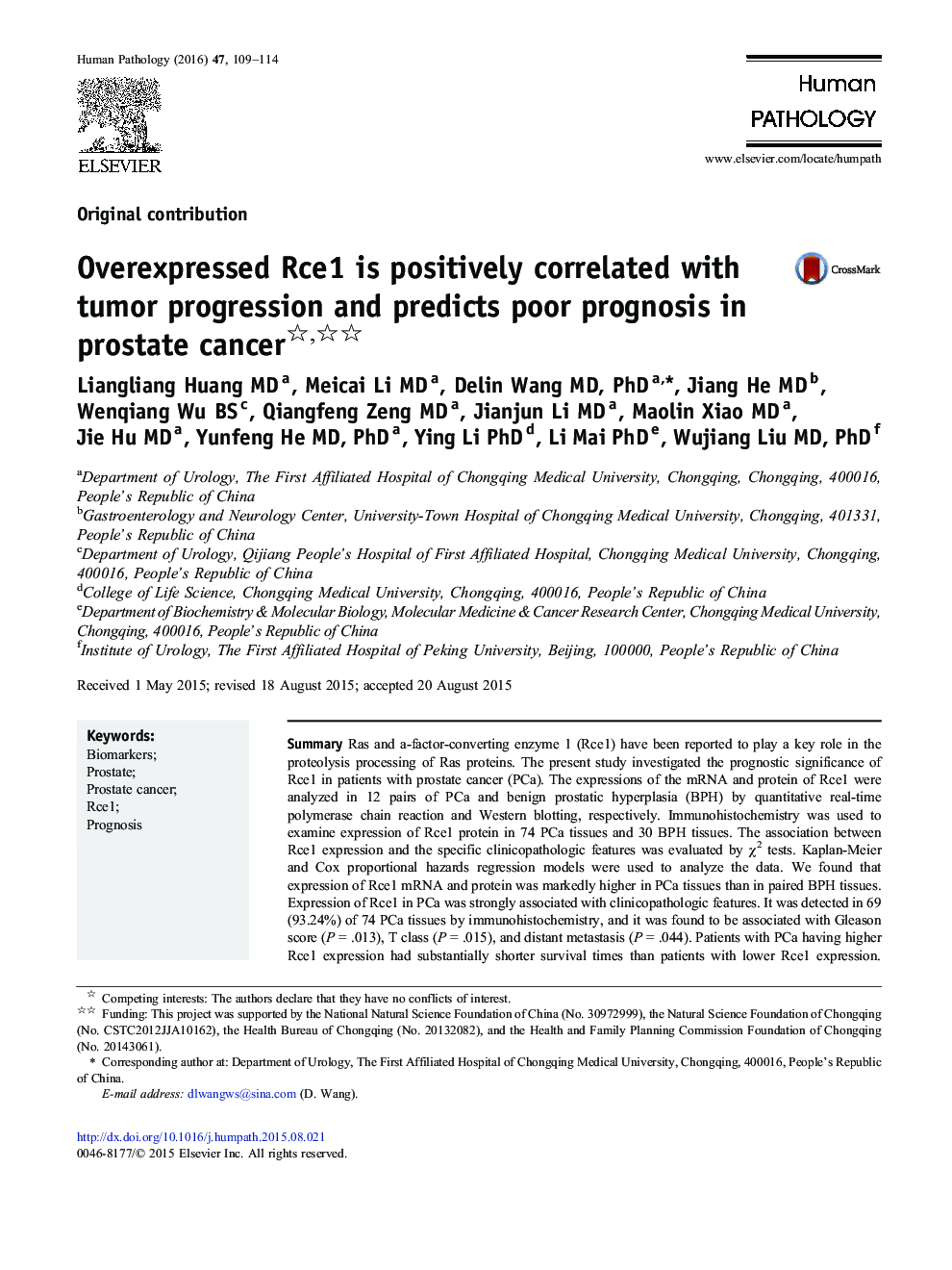| Article ID | Journal | Published Year | Pages | File Type |
|---|---|---|---|---|
| 4132495 | Human Pathology | 2016 | 6 Pages |
SummaryRas and a-factor-converting enzyme 1 (Rce1) have been reported to play a key role in the proteolysis processing of Ras proteins. The present study investigated the prognostic significance of Rce1 in patients with prostate cancer (PCa). The expressions of the mRNA and protein of Rce1 were analyzed in 12 pairs of PCa and benign prostatic hyperplasia (BPH) by quantitative real-time polymerase chain reaction and Western blotting, respectively. Immunohistochemistry was used to examine expression of Rce1 protein in 74 PCa tissues and 30 BPH tissues. The association between Rce1 expression and the specific clinicopathologic features was evaluated by χ2 tests. Kaplan-Meier and Cox proportional hazards regression models were used to analyze the data. We found that expression of Rce1 mRNA and protein was markedly higher in PCa tissues than in paired BPH tissues. Expression of Rce1 in PCa was strongly associated with clinicopathologic features. It was detected in 69 (93.24%) of 74 PCa tissues by immunohistochemistry, and it was found to be associated with Gleason score (P = .013), T class (P = .015), and distant metastasis (P = .044). Patients with PCa having higher Rce1 expression had substantially shorter survival times than patients with lower Rce1 expression. Univariate and multivariate analysis revealed that Rce1 was an independent prognostic factor. In conclusion, our study suggests that expression of Rce1 can serve as an independent biomarker for the prognosis of PCa patients.
